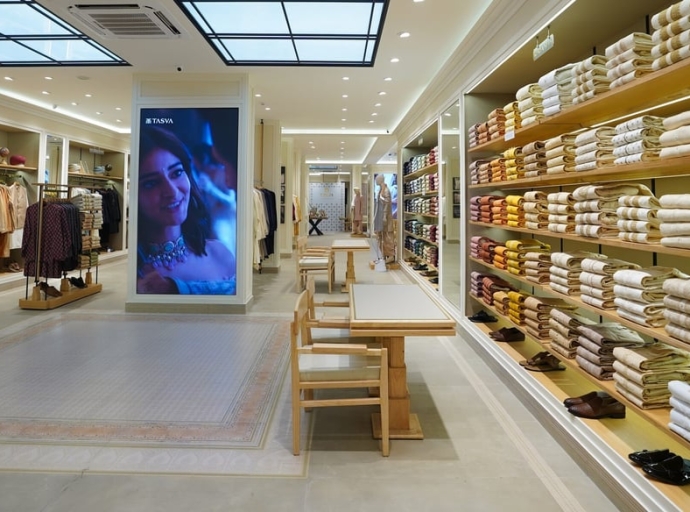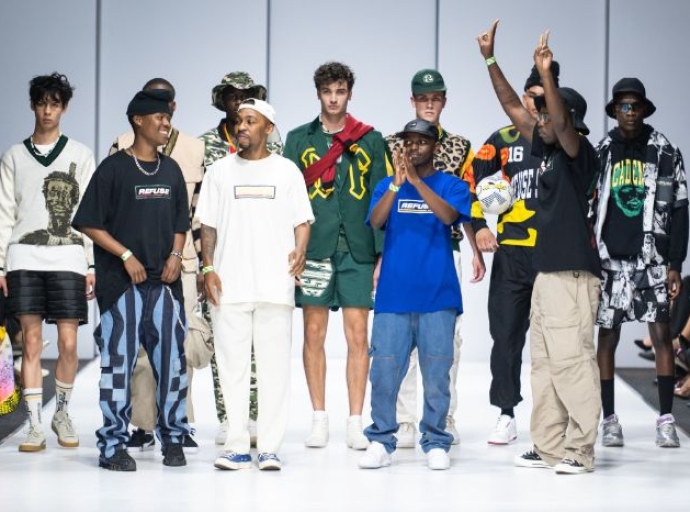03 December 2022, Mumbai
The 10th Intex India, the premier international textiles sourcing show of South Asia, will be held in Hall 3GF, Pragati Maidan New Delhi from December 8 to 10, 2022. This year, alongside the exhibition, Intex India will hosted RBSM which is jointly organised by FICCI Federation of Indian Chambers of Commerce & Industry under the aegis of Ministry of Commerce & Industry, Government of India.
Since 2015, Intex India has connected 35,000+ buyers from 15+ countries to 1350+ textile suppliers and has empowered industry players to explore new business opportunities and expand business globally making Intex India the annual calendar event for South Asia’s textile & apparel industry.
The Indian economy is a bright spot in the world with a GDP estimated to grow 6.5% in 2022-23 as per the World Bank and to grow 6-7% in 2023-24. This bodes well for a country where 60% of GDP is fuelled by private consumption. The booming Indian textile & apparel industry is fuelled by India’s 800+ million youth aged between 13 to 35 years who are driving industry growth making India the 6th-largest fashion marketplace in the world. Demand is expected to propel India’s $54 billion apparel & fashion retail industry to $118 billion by 2028 and fuel the domestic textile & apparel market to touch $220 billion by FY26 from $106 billion in FY20.
To keep accelerating the positive growth in the textiles and apparel industry in India for domestic and export markets, Intex India will showcase 100+ Indian and international textile suppliers of Fibres, Yarns, Apparel Fabrics, Denim Fabrics, Clothing Accessories, Dyes & Chemicals, Software & ERP Solutions, Colour & Textile Trends Studio and other allied and support services for the textile and apparel industryfrom Belarus, Egypt, Uzbekistan, Italy, USA, South Korea, China, Thailand, Vietnam, Sri Lanka, Bangladesh & others. The show fulfils the growing demand for innovative, fashion and sustainable textiles inIndia.
Mayank Tiwari, Founder & CEO of ReshaMandi, the official online sourcing partner of Intex India 2022 said, “Intex India is South Asia region's leading and most successful international textiles sourcing show. ReshaMandi, as India's first digital platform for the natural fibre supply chain from farm to retail, is proud to be the online sourcing partner for this expo. We invite you to come and explore ReshaMandi's sustainable offerings in yarns, fabrics, apparel, home and living and lifestyle accessories and look forward to seeing you at the 10th Intex India in Delhi from 8th to 10th December, 2022."
Arti Bhagat, Executive Director of Worldex India and organiser of Intex India said, “It has been a wonderful journey so far. Since 2015, we have organised 9 successful shows across the most relevant South Asian textile markets of Sri Lanka, Bangladesh and now looking forward to the 10th edition in New Delhi, India. As an organiser, we are determined to bring a fresh wave of opportunities for manufacturers and buyers from domestic as well as international markets to connect with each other on this platform.”
This year, Intex India would also be organising the renowned Interactive Business Forum (IBF) Seminar Series and ‘Trendz Now’ – the colour, fabric and fashion forecast showcase by Italtex Italy and Pantone / X-Rite Asia Pacific Limited alongside Intex India, thus creating a premium B2B and world-class international textile sourcing platform. Also, there are buyers’ delegations attending from major cities across India as well as overseas buyers from 18+ countries and regions will be attending the show for their textile sourcing requirements and exploring new business opportunities in India through our international trade platform.
Intex India is supported and endorsed by leading domestic and international trade bodies and business chambers across the world. We truly believe Intex India is your gateway to the dynamic markets of India and South Asia, making it one of the must-attend trade show for the textiles and apparel industry.
Latest Textile News





































